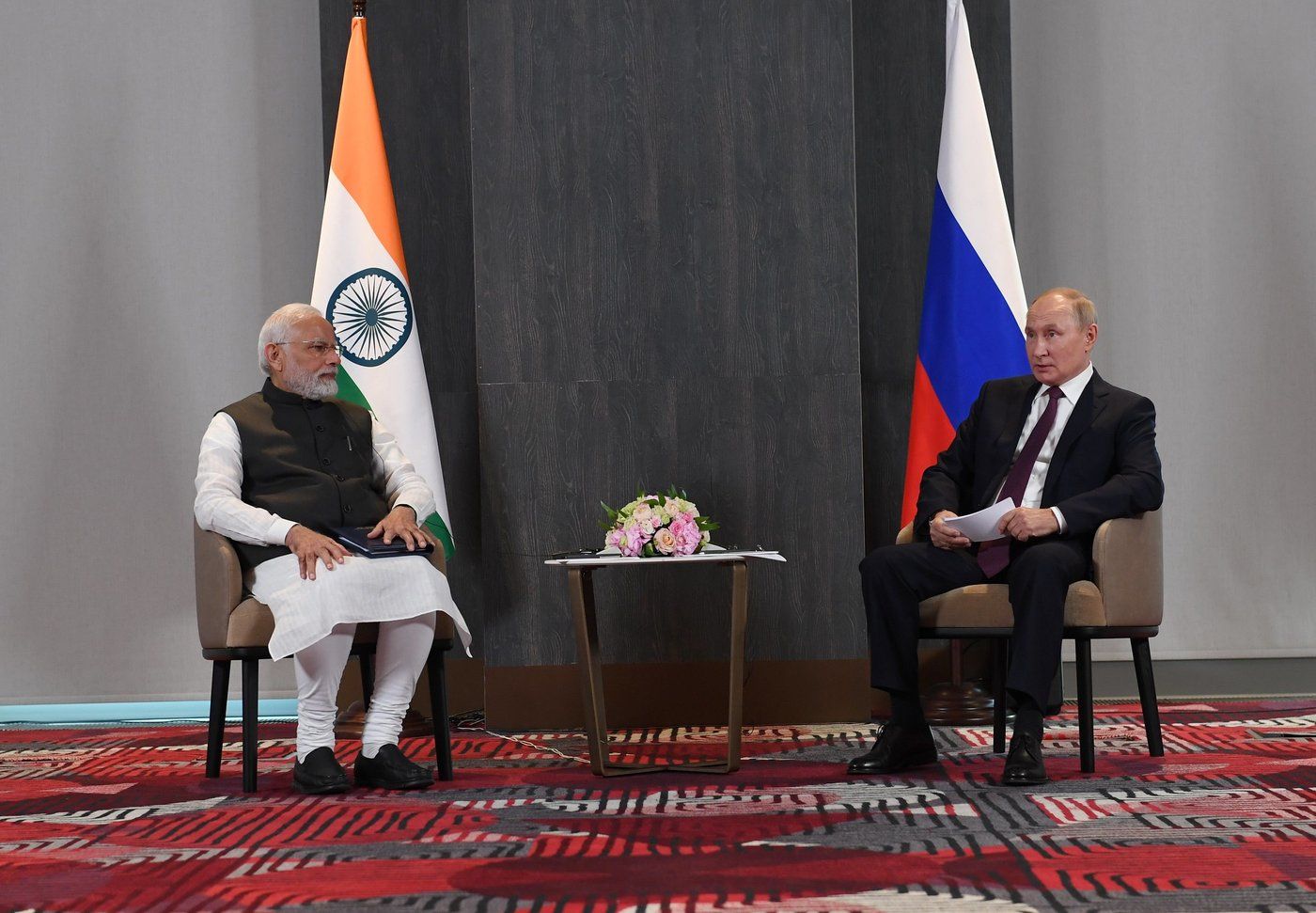Nearly three years after his last visit to India in December 2021, Russian President Vladimir Putin will be in New Delhi for the forthcoming reciprocal 23rd annual bilateral summit with Prime Minister Narendra Modi, pending the announcement of specific dates. Putin’s visit will be at Modi’s invitation extended during their bilateral meeting held on the sidelines of the October 2024 Kazan BRICS summit.
The two leaders had earlier met at the 22nd India-Russia summit held on the sidelines of the Eastern Economic Forum in Russia in July 2024. At that time, both sides reconfirmed their commitment to strengthen their “special and privileged” strategic partnership and its historical, time-tested and all-weather nature.
The upcoming summit is significant as Putin’s priority would be to advance multipolarity amid a rapidly changing global order from unipolar dominance to multipolar balance.
The Kazan BRICS summit declaration resembled a testament to building a fairer and more just world order, which will be represented by the voice of the global south/global majority that remains marginalized in Western-centric international institutions. Like China, India is expected to be considered a civilizational state and an important partner in building a multipolar order in the emerging global balance of power led by Russia’s initiatives.
Russian philosopher Alexander Dugin, whose ideas have much influence on Putin and Moscow’s policy, considers China, India and his country as civilizational states rather than nation-states in the Westphalian model of international relations.
For him, multipolarity should be based on dialogue among Russia, China and India which form the Brazil, Russia, India, China, South Africa (BRICS) grouping that challenges Western dominance. Dugin emphasizes the crucial role India can play in the new global order and balance of power, which includes liberation from a colonial mindset and keeping away from West-dominated narratives.
Questioning Western dominance
The discourse in academic and policy circles, especially in Russia and the Global South, questions the Western dominance and the marginalization of non-Western voices and experiences. The debate calls for commitment to diversity, inclusiveness, pluralistic universalism and grounding in world history.
Besides, the NATO expansion to the East, political instability, the rebirth of fascism in Europe and the US and confronting the new Cold War are the reasons for Russia’s call for building a multipolar world order with the support of Turkey, Egypt, India, China, Brazil, South Africa and others, through Eurasian integration and strengthening multilateral platforms like BRICS, Shanghai Cooperation Organization, G20, etc.
BRICS is the most crucial institution in the new Cold War and for establishing a multipolar world order. The changing global context and cooperation with Russia in the Global South, especially under the framework of BRICS, shows that isolating Russia is difficult.
Russia is now committed to building a fairer and just multipolar world order as envisioned in the Kazan Declaration, which calls for strengthening multilateralism, enhancing economic cooperation, strengthening people-to-people exchanges, respecting the UN Charter and international law, fighting terrorism and climate change, etc.
A consensus was sought to be reached about viewing “unlawful unilateral coercive measures,” such as sanctions, as detrimental to the global economy and sustainable development goals. Therefore, the expanded BRICS agreed to de-dollarize and trade in national currencies.
India’s position in the global order
Putin sees the current significance of Russia, India and China in the East to confront Containment II – US' post-Cold War containment policy – in the 21st century; in the same way Lenin observed in 1923 the significance of Russia’s alliance with India and China for ensuring the success of socialism in its struggle against imperialist countries.
In the context of the emergence of a multipolar world, former US Secretary of State Henry Kissinger also said, “India will be a fulcrum of twenty-first-century order: an indispensable element…”
Putin views that Russia, China and India’s alliance might counter NATO expansion and neo-liberal capitalism, strengthen multipolarity and ensure the emergence of a multipolar world order which will be more democratic, equitable, prosperous and peaceful. In a recent speech at Valdai International Discussion Club’s plenary meeting in Sochi, considering its fast technological and economic growth, Putin said, “India should be included in the list of great powers.”
There is speculation that Putin may have played a role in bringing together Chinese President Xi Jinping and Modi for a successful meeting at Kazan. They agreed to keep the overall relationship cooperative, contribute to regional and global peace and act with a long-term perspective to advance multipolarity.
Importantly, Chinese Foreign Minister Wang Yi asserted that Beijing and New Delhi are non-aligned, uphold multilateralism and that the two countries would contribute to the process of building global multipolarity.
Indian Foreign Minister S Jaishankar, who met Wang Yi on the sidelines of the Rio de Janeiro G20 meeting recently, said that the two sides agreed to work together towards rebuilding trust and mutual understanding. Progress will be expected in resuming direct flights, exchanging journalists and facilitating visa issuance.
At the 22nd July 2024 India-Russia summit, Putin and Modi reaffirmed their commitment to the “special and privileged strategic partnership”. India has also adopted a neutral position in the Ukraine-Russia war, urging the latter to resolve the conflict through dialogue and diplomacy in accordance with international law.
After the Ukraine war, India-Russia trade expanded considerably. India is one of the main importers of Russian oil despite pressure from US-West partners. The target is to increase trade volume from US$65 billion in 2023 to US$100 billion by 2030.
The forthcoming 23rd India-Russia summit will reflect upon and review the partnership, discuss future directions and trajectories and a roadmap for cooperation towards building global multipolarity. Defence cooperation is the major focus of Russia’s strategic partnership, though trade and economic cooperation is expanding.
(The author is an Associate Professor at the Center for Russian and Central Asian Studies, School of International Studies, Jawaharlal Nehru University, New Delhi. This article was originally published under Creative Commons by 360info)

